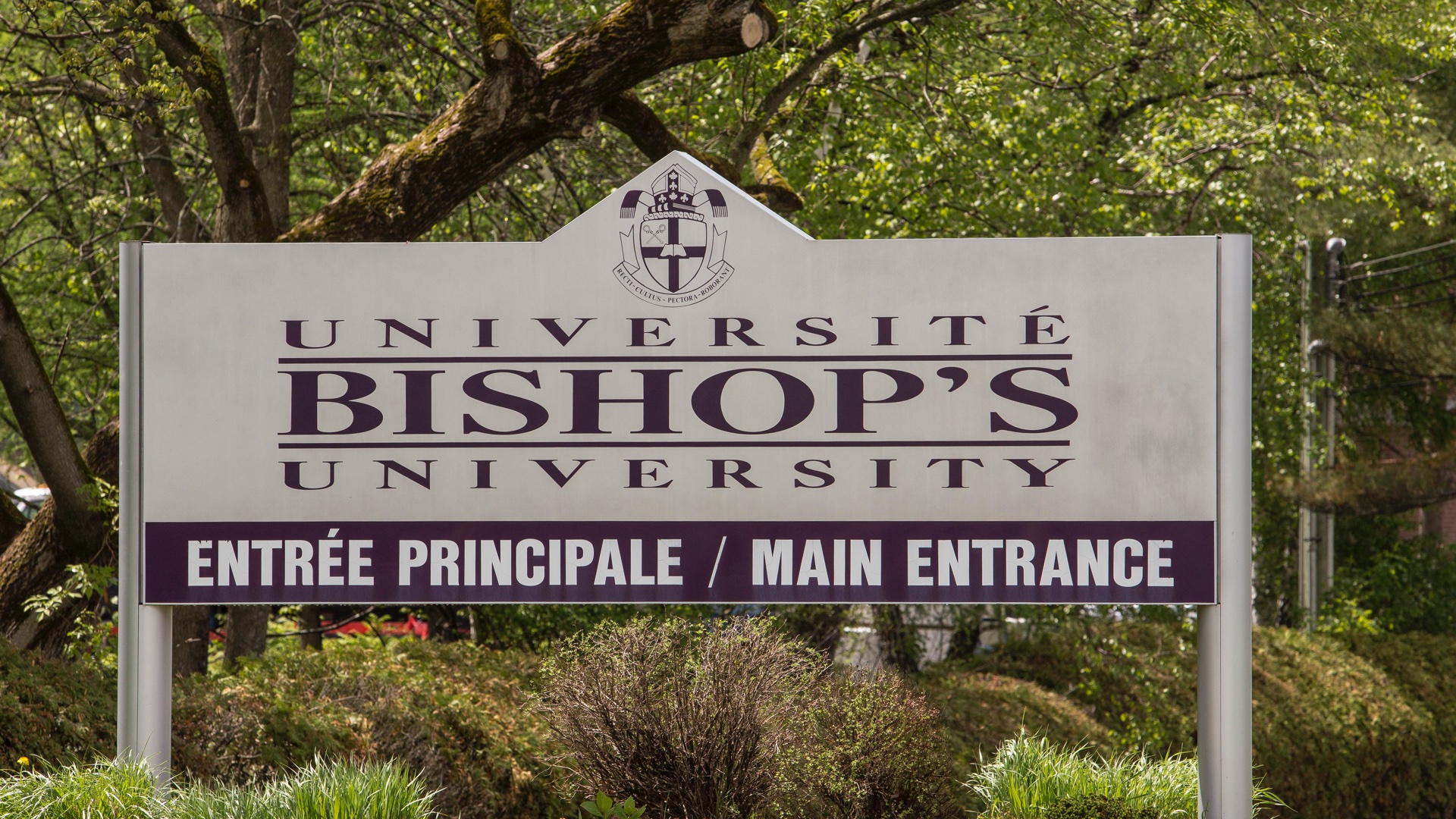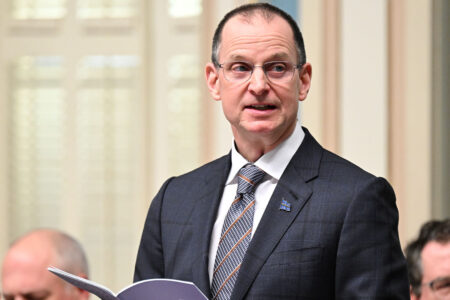
(Version française disponible ici)
Not so long ago, I was an out-of-province student in Quebec who came to study at McGill.
I took the opportunity to improve my French, then eventually developed the intention of staying in Quebec. After completing doctoral studies in Ontario, it was an easy decision for me to return to Quebec in 2021 for a position at Bishop’s University.
While studying at McGill, I found that many of us tended to remain in an English-speaking bubble in downtown Montreal. Now at Bishop’s, I was initially surprised to see that out-of-province students often do the opposite: they explore and discover the region, work in local businesses and forge lifelong friendships and relationships with their French-speaking colleagues. In fact, about one-third of our students are francophones, and both official languages are part of our campus life.
I would like to cite numerous of examples of the out-of-province students I have taught to illustrate on whom the government is now closing the door, but I’d run out of space. Suffice it to say that these are students who sought out and appreciate the chance to study in Quebec, who often work part-time in French, and who aim to improve their French and contribute to Quebec society. Many chose Bishop’s specifically to learn French.
So why not simply study at a French-language institution? Unfortunately, the quality of French education in English Canada is dismal, as studies have shown. Access to French immersion programs is also a problem. I offer my own experience as an explanation: although I completed a French immersion program in Ontario, I would never have viewed the quality of my French as adequate to succeed in a francophone school. Bishop’s, on the other hand, offers courses primarily in English in an unmistakably francophone environment.
To justify its decision to raise tuition fees for out-of-province students, the government cites two perfectly reasonable objectives: to redirect much-needed financial resources to francophone universities, and to help reverse the decline of French in Montreal. This raises an important question of what these objectives have to do with Bishop’s University.
The minister’s mistake
The government claims that out-of-province students are motivated by opportunism, coming to Quebec to take advantage of lower tuition fees than in their home provinces.
Here’s what Higher Education Minister Pascale Déry had to say in an interview: “We want to stop funding students who come here for the most part at very privileged rates (…) the majority of programs cost much more [in English Canada].”
This claim is quite far from the truth. Our out-of-province students currently pay fees of approximately $9,000 per year, instead of $5,843 to study in British Columbia (UBC), $6,100 in Ontario (University of Toronto), or $6,500 in Alberta (University of Alberta). In fact, the average cost of an undergraduate program in Canada in 2022-2023 was $6,834, a far cry from the $17,000 proposed by the Quebec government.
Déry maintains that out-of-province students will continue to come to Quebec and many will not be deterred by the increase since other provinces also feature high-priced postsecondary programs, But what the minister does not mention is that English Canada’s more expensive programs (such as law) are only paid by a small minority of students. The more relevant figure is Canada’s average undergraduate tuition cost of $6,834.
Clearly, we cannot view out-of-province students as opportunists who come to Quebec for an education “on the cheap.” In fact, it already costs more for these students to complete their studies in Quebec than in any other province. Those who come to Bishop’s have a particular interest in Quebec and the French language, and out-of-province students are an important talent pool to help address Quebec’s labour shortage, if they commit to learning French.
Legitimate goals, ineffectual measures
While the government is pursuing legitimate objectives of protection of French and increased funding for the francophone postsecondary network, the means it has chosen are poorly suited to achieving them.
English-language institutions could be better partners if they had the means to ensure French-language proficiency for students from outside Quebec, as well as their integration into the job market. For its part, Bishop’s is concerned about the issue of talent retention in its region. But with the proposed tuition reform, instead of sending the message that any talented person who accepts the common public language is welcome in Quebec, the government is showing this is not true.
In my own case, for the first time, I see a strong sign from my provincial government that I am not actually welcome here, as I would never have been able to study and eventually settle in Quebec if this policy had been in place.
The government also takes aim at students who leave Quebec after graduation, asking why should Quebec help to finance their education? In response, one might mention the economic benefits to Quebec from hosting out-of-province students, or long-established Canadian reciprocity agreements whereby other provinces do the same for students from Quebec or elsewhere in Canada. Moreover, the phenomenon of students returning to their home province after their studies is not unique to Quebec. It is challenging to settle in a new province when most of your family, friends, professional networks, or even career opportunities are elsewhere. But in the end, these exchanges, even temporary ones, remain profitable.
Unfortunately, if the proposed tuition policy is adopted in its current form, Bishop’s University will probably not survive as an institution. It is unfair, to say the least, for Bishop’s to suffer the collateral effects of a policy aimed at Montreal. This university, which has been rooted in the Eastern Townships since 1843, contributes the least to the problems identified by the government – financial imbalance and anglicization – and would clearly suffer the most from the reform.
Finally, for a self-proclaimed “government of the regions,” it is curious how much of its attention is currently focused on the metropolis, in this case to the detriment of the Eastern Townships. As community leaders have noted, the proposal will have a devastating impact on the region whose economy is smaller and less diversified than that of Montreal.
The end of a Quebec model?
It may be years before Quebec fully confronts the damaging effects of this decision. Musician Joni Mitchell famously sang “you don’t know what you’ve got till it’s gone.” Before making such a far-reaching decision, it is crucial to study its repercussions in greater depth, consult all relevant sectors and actors in multiple regions and, above all, have a strong understanding of postsecondary funding.
Quebec has long demonstrated a distinct model within Canada, based on the principal of accessible higher education, grounded in a commitment to Quebec’s national development and social solidarity. There is a risk this model will be substantially weakened if the province chooses to deviate from this legacy and opt instead for the creation of new, profound and unprecedented inequalities in our higher education system. Fortunately, there is still time to put things right. Let’s hope the government comes to its senses.









